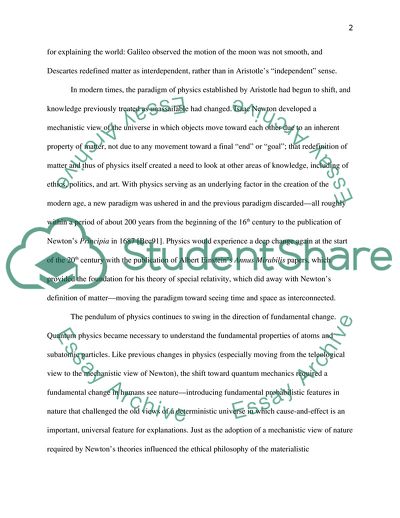Cite this document
(Knowledge Today and Knowledge Tomorrow Article Example | Topics and Well Written Essays - 2000 words - 1, n.d.)
Knowledge Today and Knowledge Tomorrow Article Example | Topics and Well Written Essays - 2000 words - 1. https://studentshare.org/science/1805799-that-which-is-accepted-as-knowledge-today-is-sometimes-discarded-tomorrow-consider-knowledge-issues-raised-by-this-statement-in-two-areas-of-knowledge
Knowledge Today and Knowledge Tomorrow Article Example | Topics and Well Written Essays - 2000 words - 1. https://studentshare.org/science/1805799-that-which-is-accepted-as-knowledge-today-is-sometimes-discarded-tomorrow-consider-knowledge-issues-raised-by-this-statement-in-two-areas-of-knowledge
(Knowledge Today and Knowledge Tomorrow Article Example | Topics and Well Written Essays - 2000 Words - 1)
Knowledge Today and Knowledge Tomorrow Article Example | Topics and Well Written Essays - 2000 Words - 1. https://studentshare.org/science/1805799-that-which-is-accepted-as-knowledge-today-is-sometimes-discarded-tomorrow-consider-knowledge-issues-raised-by-this-statement-in-two-areas-of-knowledge.
Knowledge Today and Knowledge Tomorrow Article Example | Topics and Well Written Essays - 2000 Words - 1. https://studentshare.org/science/1805799-that-which-is-accepted-as-knowledge-today-is-sometimes-discarded-tomorrow-consider-knowledge-issues-raised-by-this-statement-in-two-areas-of-knowledge.
“Knowledge Today and Knowledge Tomorrow Article Example | Topics and Well Written Essays - 2000 Words - 1”. https://studentshare.org/science/1805799-that-which-is-accepted-as-knowledge-today-is-sometimes-discarded-tomorrow-consider-knowledge-issues-raised-by-this-statement-in-two-areas-of-knowledge.


